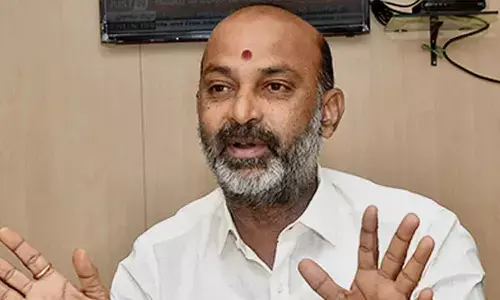India to rely less on computer services exports

The government’s Digital India programme, expanding startup and venture capital scene and increased computer use by MSMEs to fuel domestic market: UNCTAD report
United Nations: The domestic market for India's computer services sector is forecast to grow faster than its export market lessening its "over-reliance" on foreign countries, according to a report by the UN Conference on Trade and Development (UNCTAD).
In India, which ranked second globally among the exporters of information communications technologies (ICT) services, the domestic market for computer services "is forecast to grow faster than their exports, fuelled by the Government's Digital India programme, its burgeoning startup and venture capital scene, and increased computer use by MSMEs (micro, small and medium enterprises)," the UNCTAD's first Digital Economy Report released on Wednesday said.
"The computer services industry in India is increasingly catering to the domestic market, leveraging expertise gained from exporting while at the same time reducing an over-reliance on such exports," the report said.
India delivered 19 per cent of its computer services exports through its ICT exports going abroad to customers while 81 per cent was digitally delivered, according to the report.
Value added by the ICT sector as a share of GDP for India in 2015 was 5.1 per cent and the share of employment was 1.3 per cent, according to UNCTAD.
India ranked ninth in global e-commerce sales with $400 billion in 2017 and buyers each made average purchases of $1,130 that year, the report said.
More than 90 per cent of Indian users of the internet were concerned about privacy and more than 57 per cent were aware to some extent at least of the data protection and privacy regulations, the report said.
While briefing the media on the report, the UNCTAD's Director of the Division on Technology and Logistics, Shamika Sirimanne, spoke of the challenges posed by "super" internet platforms like Microsoft, Google and Amazon.
"You need to make sure that (with) the data there is privacy, there is protection, and taxes are paid (and) that regulations need to be addressed," she said.
Those companies collect data from users from which they extract value and while they receive the data free from other countries, they charge them to use what they have extracted from the data, she said.
While 90 per cent of the developing world is using Facebook and 60 per cent of the profits are created outside the US, 90 per cent of the taxes are paid to the US, she pointed out.
Google has 90 per cent of the market for internet searches and Facebook controls two-thirds of the global social media market, she said.











